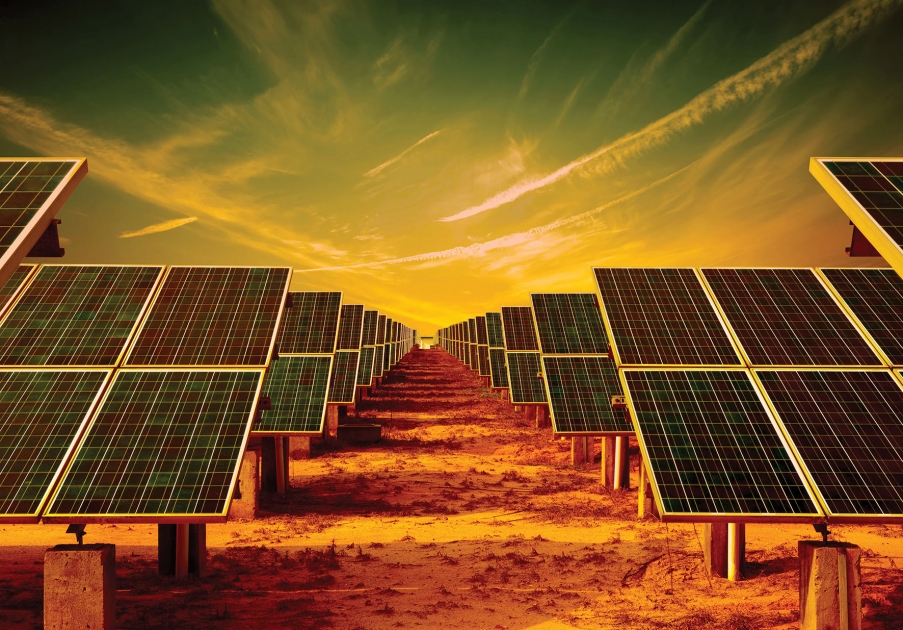
Saudi Vision 2030 Gives Boost to Solar Energy Investors
Private sector investors are showing new interest in Saudi Arabia’s solar energy market, after the nation’s leadership included plans to add 9.5 GW of renewables to the energy supply as part of Saudi Vision 2030, along with opening the way to greater private sector and international investment.
Announced in April, the Vision 2030 strategy sets 9.5 GW as an ‘initial target’ to help build the renewables sector, noting that energy consumption will triple in the next 14 years. The Saudi government has since confirmed that it aims to achieve that target by 2023, a rapid increase from the nation’s 25 MW of installed renewable energy capacity at the end of 2015.
Saudi Arabia’s plans are being supported by a comprehensive restructuring of government departments responsible for energy. Vision 2030 also promises a complete review of the legal and regulatory framework to allow the private sector to buy and invest in the renewable energy sector.
“The projects that will flow from Saudi Arabia’s renewable energy plan create a landmark opportunity for technology manufacturers, developers and investors in solar energy, setting out a very real, very achievable ambition,” said Roberto de Diego Arozamena, CEO of Abdul Latif Jameel Energy, the largest GCC-based solar photovoltaic developer and one of the largest in the world.
With a pipeline of 5 GW in its worldwide solar energy portfolio, Abdul Latif Jameel Energy is promoting the industry’s growth by sponsoring the World Future Energy Summit and Solar Expo, to be held in Abu Dhabi in January 2017.
“Given that prices for solar, which is the most practical renewable energy source in the region, continue to fall, it is actually likely that Saudi Arabia could achieve more than 9.5 GW in this time period,” said de Diego Arozamena. “Private companies can play a vital role in unlocking Saudi Arabia’s potential for green energy, enabling technology transfer through international partnerships, and establish the nation as a global leader in renewables, particularly solar.”
Analysis by Frost and Sullivan for the WFES Solar Expo scores Saudi Arabia highly for solar energy’s potential demand and investor attractiveness, but not so strongly for solar-related policy, as assessed before Vision 2030’s announcement. The Frost and Sullivan / Solar Expo ‘Advancing Solar Energy Solutions: Market Outlook’ report also gives the Kingdom low scores for not pricing electricity to reflect the cost of production.
WFES, which is the MENA and South Asia region’s leading commercial event for the renewable energy industry, is expected to see strong interest in Saudi business opportunities when the next event is held as part of Abu Dhabi Sustainability Week in January, 2017. Investors will be looking for further detail on Saudi Arabia’s proposed business case for the private sector, with the Vision 2030 statement including an endorsement of public-private partnerships, and a commitment to guarantee the competitiveness of renewable energy through the gradual liberalization of the fuels market.
Frost and Sullivan market data on energy efficiency notes that cuts to fuel subsidies saw petrol prices rise by around 50 per cent for 95 octane-rated and around 67 per cent for 91 octane-rated during 2015. In late 2015, Saudi Arabia outlined a five-year plan to raise fuel and energy prices, including natural gas, petrol, diesel and electricity.
Saudi Arabia has already made considerable steps towards making the electricity network more competitive, separating generation and transmission, and opening the market to greater private-sector and foreign investment. Reducing fuel subsides and pricing energy based on cost will improve the nation’s fiscal position, and level the playing field for new suppliers and emerging technologies, allowing market forces to contribute to national objectives.
First held in 2008, WFES aims to build the business case for renewable energy. Hosted by Masdar as Part of Abu Dhabi Sustainability Week, the 2017 edition will be held at the Abu Dhabi National Exhibition Centre from January 16 to 19.



























